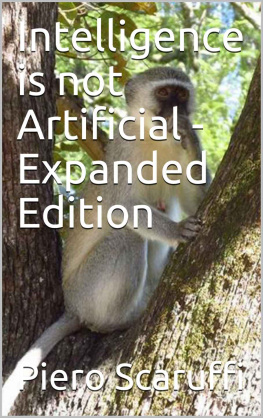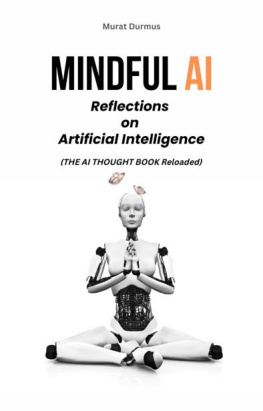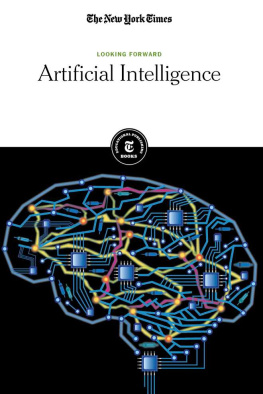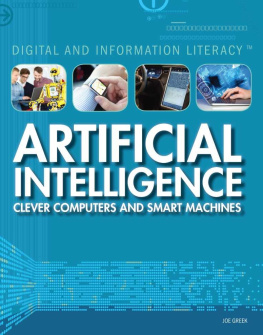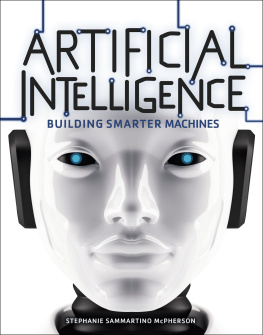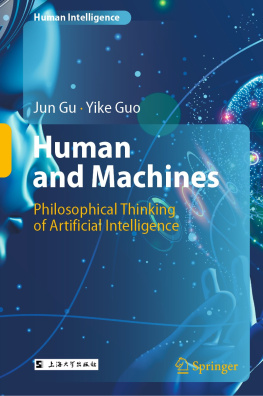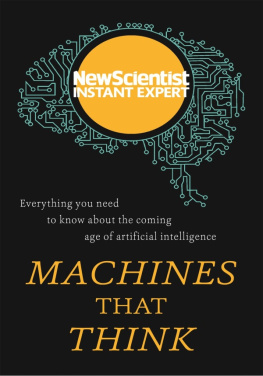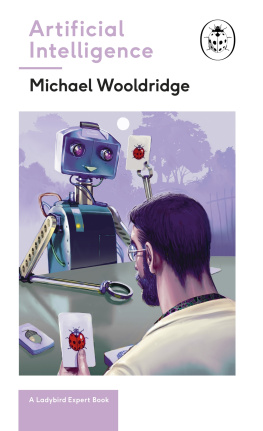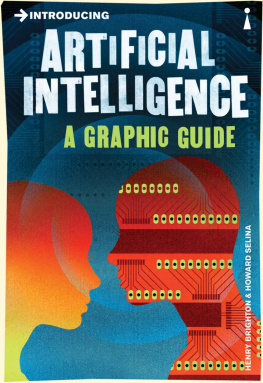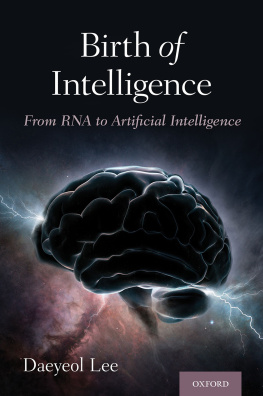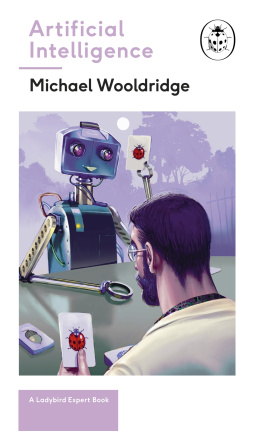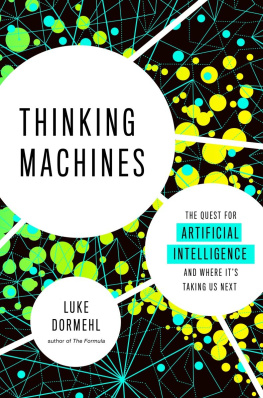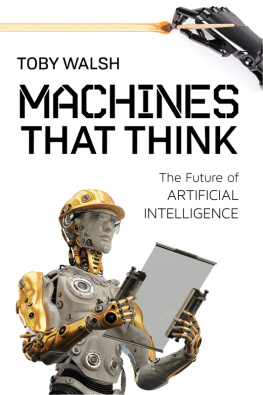No part of this book may be reproduced or transmitted in any form or by any means, graphic, electronic or mechanical, including photocopying, recording, taping or by any information storage retrieval system, without the written permission of the author (http://www.scaruffi.com). Your support of the authors rights is appreciated.
To the machines that will never become intelligent enough to understand the books that humans write about them and why we write them
What this Book is About 2019 Edition
(I apologize for the long preface, but, paraphrasing Mark Twain, "I didn't have time to write a short one, so I wrote a long one instead").
This book contains a boring history of Artificial Intelligence but also something more interesting. This book, basically, deals with three fascinating sociological and anthropological phenomena: 1. an old-fashioned apocalyptic religion, according to which the robots are coming and will kill us all (or, at least, steal our jobs and make us irrelevant); 2. an old-fashioned prophetic religion, according to which a superhuman entity (the singularity) is coming and will save us all (i.e. will make us immortal); and 3. a new kind of society, the "vast algorithmic bureaucracy", in which everything that is not forbidden is mandatory (which, i feel, is the real news, not just an irrational belief like the other two).
Since the publication of the first edition of this book (the "philosophical" edition), it has become difficult to say something intelligent about Artificial Intelligence. The market is flooded with books that alternatively predict the apocalypse or the panacea to all problems.
Luckily, an increasing number of scholars are coming out to speak against the hype, the unreasonable expectations and the exaggerated fears that have been created by the not-too-well-informed media and by not-too-honest writers and publishers.
I originally wrote the book "Intelligence is not Artificial" in 2013 when the media started reporting stunning progress in Artificial Intelligence that in my opinion was wildly exaggerated and when discussions about the Singularity were becoming, in my opinion, a bit ridiculous. My 2013 book was more philosophical than technical.
Now the term "Artificial Intelligence" has become so popular that i literally don't know anymore what we are talking about: just about everything is being tagged "Artificial Intelligence". The devices of the so-called "Internet of Things" are regularly marketed as "Artificial Intelligence" as are all of data science and most of statistics. This fad was almost singlehandedly created by one corporation's press releases, hailing humble experiments in neural networks (often based on very old theory) as steps towards a technological, social and economic revolution. Countless firms are rushing to reprint and restyle their marketing material to include popular terms such as "machine learning" and "bot" (short for "robot", typically a software robot). The term "Artificial Intelligence" is so abused that i wonder why a light switch is not called "Artificial Intelligence": after all it does something that is short of miraculous, it turns a dark room into a bright room. When i asked a startup founder why he was calling his device "Artificial Intelligence" but not his TV set, he couldn't come up with a good explanation. A TV set uses sophisticated algorithms to "learn" what the original image was, and the "app" is pretty spectacular: i press a button and i see someone who is in another city. I can keep pressing buttons and see people in different cities. It looks like a pretty amazing application to me, certainly more amazing than that startup's wearable device that checks some bodily data and displays a warning if they are too high or too low.
Much has changed since i first published this book in 2013. The main change is not in technological progress, but in the definition of Artificial Intelligence. What a departure from the 1990s, when the expression "Artificial Intelligence" was ridiculed. "Artificial Intelligence" is rapidly becoming synonymous with "automation". All automation is now "Artificial Intelligence". For example, the A.I. community never considered a factory robot that simply repeats the same movement all the time as "intelligent", but now it is. Some of these robots replace the dumbest of human activities, but they are now routinely classified into the "Artificial Intelligence" category to the point that old-school A.I. researchers literally don't know what "automation" means anymore: is there anything that is "automation" but not "Artificial Intelligence"?
The railway or airplane seat booking systems are sophisticated computerized systems that we never called A.I. but it looks like today they would be called A.I. They certainly do something much more useful than playing a board game, and they serve billions of passengers. If they weren't decades old, the various weather forecast systems (some of the most challenging simulation programs in the world) would also be classified as A.I. And what about the various "malware" that infiltrate millions of computers worldwide? Arent those A.I.? In the 1960s, A.I. scientists had some dignity and never claimed that the Apollo mission guidance system was A.I. but today more trivial guidance systems for drones are routinely called A.I.
John McCarthy is credited with saying: "As soon as it works, no one calls it A.I. anymore" (incidentally, i have never been able to prove that he really said it). Today we are rapidly moving towards the opposite bias: "If it works, everybody calls it A.I."
We have seen this movie before. In the 1980s the most reputable names in business studies were counting billions of dollars of investment in A.I. simply because everything was being tagged A.I. It was popular to be an A.I. company, group, researcher (i was one of them, the founding director of Olivettis Artificial Intelligence Center in California). In the 2010s, we are witnessing a similar craze. A few months after Bloomberg estimated the total 2015 investment in A.I. startups at $128 million (a decline by 50% over the previous year), VentureScanner estimated $2.2 billion, 20 times more. How could Bloomberg be so wrong? It all depends on what you count as A.I. What happened in those few months between one and the other study was that just about every startup rebranded itself as being an A.I. company or at least having an A.I. component. A similar phenomenon is spreading through the corporate world, rebranding old projects and products as A.I.-based. Artificial Intelligence will soon encompass every software on your mobile phone.
I have been using a messaging application since 2014. Recently i noticed that they changed the top line of their website. It now boasts "Voice Calls: Secure, Crystal-Clear, AI-Powered", but it is the exact same app of 2014. The camera feature that Canon dubbed "image stabilization" is now routinely marketed as an "intelligent" feature. Canon introduced it in 1995 with the EF 75-300/4-5.6 IS zoom lens, and the other camera manufacturers followed suit (Nikon called it "vibration reduction" but now the acronym VR is being monopolized by virtual reality). It is based on simple optical formulas, and in 1995 nobody would have dreamed of relating it to Artificial Intelligence. In 1992 Mattel released a talking Barbie doll which spoke a few sentences such as "Wanna have a pizza party?" Today this would probably be hailed as another feat of A.I. (In a prelude to all the controversies that would arise in the age of chatbots, this talking doll was parodied on the TV show "The Simpsons" and some dolls were later recalled because accused of being sexist by the American Association of University Women). When (in 1999) Tim Westergren and Will Glaser wrote the algorithm (the Music Genome Project) to classify musical compositions based on a few hundred features, and later (in 2000) launched the application Pandora that picks music for you based on your taste, they didn't call it "Artificial Intelligence". But that's what it is now. Now it would be silly not to call it A.I., given that much simpler algorithms are marketed as A.I. I suspect that today Akihiro Yokoi's Tamagotchi pets, released in 1996, whose life story depends on the actions of the owner, would be marketed as A.I. And certainly Eyepet, the Sony PlayStation3 game of 2009 developed by Playlogic in the Netherlands (that was a top-selling game) should qualify as A.I.: this virtual pet (augmented reality before it became fashionable) reacts to objects and people. In 2017 Huawei introduced the smartphone Mate 10 Pro equipped with a "neural processing unit" (NPU) that reportedly accelerates Microsoft's translation software: it is just a faster processor. In Hangzhou i was told that they are building an "A.I. hotel". I asked what is an "A.I. hotel" and they told me it's a hotel where guests use a card to enter the front door and to register themselves at booths. There is no reception. I used similar hotels twice, in Sweden and France, but back then nobody thought of calling them "A.I. hotels". Your dishwasher will soon be called A.I. In fact, you don't know it, but your house is already full of A.I. machines: the manufacturers are changing the brochures while you are using them. The "smartphone" somehow contributed to the misunderstanding. Ericsson was the first brand to coin the phrase "smartphone", with the release of its GS88 in 1997 and the term "smartphone" took off around 1999-2002, especially after the launch of Research in Motion's first BlackBerry phone (the 5810) in 2002. By accident, Apple launched the iPhone in 2007 just when "deep learning" was invented. The two events had nothing in common, but, one being called "smart" and the other one being called "intelligent", some confusion was inevitable. And, by accident, 2012 (the annus mirabilis of deep learning) was the year when the world went mobile: smartphone sales skyrocketed to 680 million units, up 30% yearly (according to Gartner Group), a feat repeated the following year and never repeated again. The peak of the smartphone frenzy was the fourth quarter of 2012: 208 million smartphones were sold, a 38% increase over the fourth quarter of the previous year. By coincidence, that's exactly when the A.I. world was shaken by deep learning's spectacular success in the Large Scale Visual Recognition Challenge (ILSVRC), whose competition results were announced in December. "Smart" and "intelligent" became mandatory adjectives for just about anything. The word "intelligent" is being applied to all sorts of features in all sorts of appliances, gadgets and devices, but the founders of Artificial Intelligence would turn in their graves if they were told what features now qualify as "intelligent".

